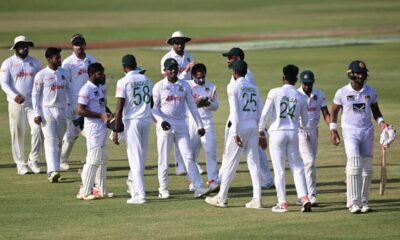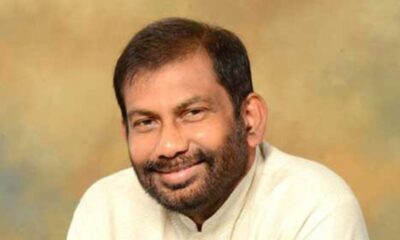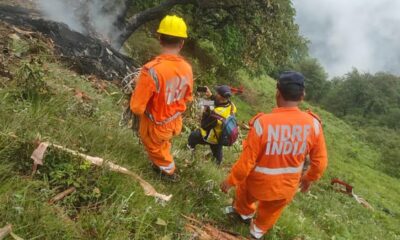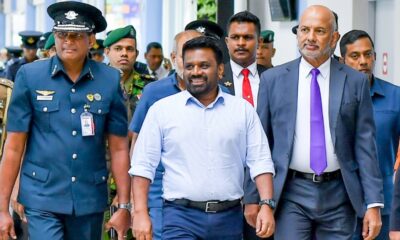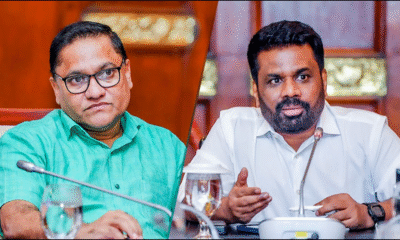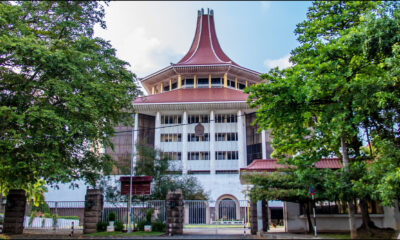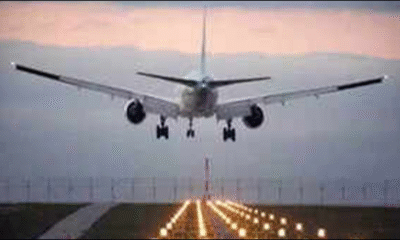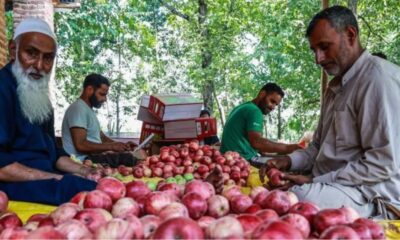News
President addresses the Berlin Global Conference
Published
2 years agoon
By
editor
President Ranil Wickremesinghe expressed the need for a comprehensive dialogue between Western nations and China, the United States of America and China and the European Union and China, as a critical component of a robust international plan capable of addressing the global challenges anticipated in 2024.
The President also highlighted that initiatives such as the ‘Belt and Road’ have led to increased scrutiny of countries like Sri Lanka, potentially impacting the economic prospects of nations in the Global South. Nevertheless, he emphasized that Sri Lanka has a history of engaging with countries like the United States, India, and China, making such interactions a familiar and essential part of international relations.
President Ranil Wickremesinghe made these remarks while delivering the opening speech on the first day of the ‘Berlin Global’ Dialogue in Berlin, Germany, today (28).
During the subsequent round table discussion, President Ranil Wickremesinghe also expressed gratitude for the support received from India and Bangladesh in addressing Sri Lanka’s recent economic challenges.”
President Wickremesinghe underlined the contrast between advanced economies, which possess buffers and reserves to weather these shocks, and developing nations that lack such resources. He emphasized that this disparity was the starting point for the sovereign debt crisis.
The President cautioned that without immediate corrective measures, the world could be on the brink of another crisis. He acknowledged that many developing countries are burdened with substantial debt, highlighting the inadequacy of existing mechanisms like the IMF to address this new situation. He shared Sri Lanka’s experience when declaring bankruptcy, which led to a halt in foreign funding and triggered a political crisis.
President Wickremesinghe praised Germany for its significant contribution to the Green Climate Fund, which has been instrumental in addressing climate change mitigation and debt restructuring challenges. However, he stressed that the current funding available is insufficient to meet the immense challenges.
The President called for utilizing the $100 billion with the IMF as a starting point, emphasizing that it is better than having no funds at all. He noted that the financing needs for climate prosperity and clean energy technology to achieve net-zero emissions are substantial, even for countries facing economic hardships.
President Wickremesinghe stressed the urgency of global coordination and leadership to resolve these challenges, which have not been sufficient to address their magnitude. He highlighted the need for a new international financial architecture to replace the existing one, designed nearly 80 years ago. The President urged ambitious action to reform the international financial architecture, making debt restructuring less complex and more effective.
He advocated for a significant increase in concessional financing through multilateral development banks, emphasizing the importance of broader accessibility, even for middle-income nations facing economic vulnerabilities. President Wickremesinghe acknowledged that the current IMF negotiation process is not tailored to address countries in crisis.
The President called for immediate action and urged a comprehensive dialogue between Western countries, China, and other key global players. He emphasized that 2024 is the year to act, given the reduced leadership capacity of the United States due to its impending elections.
President Ranil Wickremesinghe concluded by highlighting the need for cooperation and collective action to create an international financial architecture that better reflects today’s global realities and provides effective representation for nations in need.
The Berlin Global Dialogue serves as a crucial platform for leaders to address critical global economic issues, and President Wickremesinghe’s speech contributed valuable insights to the discussions on these pressing challenges.
Following is the full speech of President Ranil Wickremesinghe at the Berlin Global Dialogue under the theme ‘Worldwide Economic Shocks and the Impact on the Global South”
I must begin by thanking Professor Lars-Hendrik Röller, Chairman Berlin Global Dialogue, for inviting me to this inaugural session.
Where the way I look at it, the global economy has many shocks since in the last two decades. Starting from 2008, we’ve gone through a series of the European debt crisis. Then we’ve had the COVID-19 pandemic, and the economic shocks that have come from it, the whole issue of funding for climate change, and the sovereign debt crisis.
I don’t think in any other period of modern history have we gone through this type of a crisis. And in all these instances, it’s the developing economies and the global south that has suffered extremely. We are now faced with stubbornly high inflation in advanced economies, oil prices edging towards US $100 a barrel, and monetary tightening by the global central banks.
One example is that Sri Lanka’s export to Europe has not increased at all this year, so far this year. That’s an indication of how we are being affected as we try to recover from the crisis we face.
The confluences of factors face serious risk for many developing countries. In the global south, we are facing rising import costs, food, energy, insecurity, and the problems of our exports. The resulting balance of payment stress translates into a weaker economy for all of us. The difference between the advanced economies and the developing nations is that you all have all the buffers and reserves to deal with these shocks. We haven’t. And it’s from here that the sovereign debt crisis started.
In this context, I think the world may be on another crisis if corrective measures are not taken immediately. Many developing countries find themselves with large debt burdens. For example, IMF has no mechanism to face this new situation. When Sri Lanka declared bankruptcy, all foreign funding ceased and that started the political crisis. If not for the help given by World Bank in re-graduating Sri Lanka, and the help given by my old friend Samantha Power in funding us with fertilizers, the chances are that I may not be, I would not be able to come here today. I would not have been in the position.
It’s so bad. And there’s no way in which you can help any country which declares bankruptcy. But in this case, especially, I’m glad that Germany is doing its part as the largest cumulative contributor to the Green Climate Fund. We have both the climate change mitigation and debt restructuring, both of which we have to handle with minimum funds available.
The funding on the table is woefully inadequate to address the vast challenges at hand. So we haven’t got any money. But we do have 100 billion with the IMF. Let’s start with that money.
100 billion is better than nothing. Then let’s see how we can raise the rest of it. Because though I talk of Sri Lanka, I must say Africa’s need, especially of the low-income countries, are far greater than ours. And the problems Africa face need not be described by me because I think there are enough representatives here. The developing countries require financing up to US 5.9 trillion to fulfil their nationally determined contributions. Then further US 4 trillion, for clean energy technology to achieve net zero emissions, look at Sri Lanka’s financing needs for our climate prosperity plan to succeed. We need 26 five billion US dollars by 2030.
These are a country that’s bankrupt. And with the IMF states, we’ll have for the next few years a growth rate of 3.5% if you are lucky. Here again, global coordination and leadership to resolve these challenges have simply not been sufficient to address the magnitude of the urgency of the problem. So what we need here is a new architecture.
Now we’ve been talking of the many crises and shocks we have discussed today are interlinked. And we’ve been talking of what we have to do. First, we’ve all agreed that the core of the international financial architecture today was designed almost 80 years ago. The world has seen dramatic changes since then with many emerging economies in Asia, Middle East, South America, and Africa becoming global economic powerhouses.
However, the international architecture has seen relatively mild reforms. The international financial architecture available makes the debt restructuring too complex. This we have all agreed on. The magnitude of the challenges discussed today requires ambitious action. Developing nations will not be able to mobilize the financing required to combat climate change. There’s an urgent need for a significant increase in the envelope of concessional financing made available through the multilateral development banks.
The MDB assets are considerable. It can be deployed in risk mitigating instruments. Tax havens are still left out of this question. Why don’t we bring them in the same sanctions we have applied to Russia?
There are many, the concessional financing should be accessible by a broader group of countries, including the middle income nations facing numerous economic vulnerabilities. In the depth of Sri Lanka’s economic crisis of 2022, even though the country was implementing robust IMF supported reforms, the country could not access any new foreign concessional financing due to its situation or debt distress. I must tell you that the negotiation with the IMF is certainly not tailored for these situations. It’s still the old way of negotiating.
So then what do we require? I think we have a whole lot of proposals, starting from the Bridgetown Initiative onwards as how to deal with it. The Paris Climate Summit is preparing a roadmap.
Now, I’m not going to add anything more to it. All I’m saying is choose from this. Let’s act. But it’s aggravated because the developing countries to emerge from the prevailing economic challenges, including debt request, a critical requirement, is open access to trade, investment, capital, technology force.
But unfortunately, the great power rivalries and geopolitics have been an emerging threat for such market success. The Washington Consensus was rejected in Jake Sullivan’s address at the Brookings Institute. With new concept of de-risking and decoupling, the developing South, which was compelled to follow the Washington Consensus, is now asked to do a 180 degree turn even without consultation with us. Since decoupling, and since the Brookings speech, whatever it is, we have been asked to change the system. We were compelled to get into it. Now we are told this is no longer relevant.
Furthermore, Belt and Road Initiative has been labelled as a cohesive program, and the participating countries like Sri Lanka is looked upon with suspicion. This will further hurt economic prospects in the global South, and the polarization will become more evident.
For a country like Sri Lanka, we have learned to live with pressure from America, India, and China. I mean, that’s nothing new for us anymore. The United States is witnessing an acrimonious run-up to the 2024 election year, which will detract from its ability to lead in this instance. It is creating a vacuum, because if the US wants a new order, the US must lead. But we know from now onwards, till end of next year, that leadership will gradually reduce as they start focusing more and more on their 2024 elections. So then what happens to the rest of us? Then, on the other hand, you are finding a challenge to G7 and QUAD, which is the expansion of the BRICS, what you call the BRICS Plus. The South is now looking for alternative leadership. And we can see the G20 has been downgraded. So in this situation, are we going to act in 2024?
Let’s talk, it’s useless giving any more solutions. It’s what are we going to face? We know in 2024, the US leadership may not be there. Then who is going to act? So I think it’s a chance for the EU to come up and work with the other countries. There’s no one else. So I am suggesting that EU, together with G20 BRICS, certainly USA, and some selected other Asian and African nations not represented, the IMF and the NDBs, and you can bring in the big financial institutions, private ones, sit down and find urgent solutions.
We are talking of the summit for the future, summit for the future is in September next year. Elections are in November next year. So I can’t see a summit for the future bringing anything out before the elections take place in 2024. But 2024 is the year to act. We are watching 2024. And whether you can come up, whether we can come up with a new international architecture that better reflects the global realities of today and provide effective representation for those who need it. So we have the resources, we have the solutions, we just need the willpower to decide how it’s going to be.
It has to be done urgently. We require a constructive dialogue between the West and China. We need a constructive dialogue between US and China. We need a constructive dialogue between EU and China. Otherwise we will not move forward. So this is the stark reality. It’s a question of how we get together and how we work, and who’s going to take the lead in 2024.
(President’s Media Division)
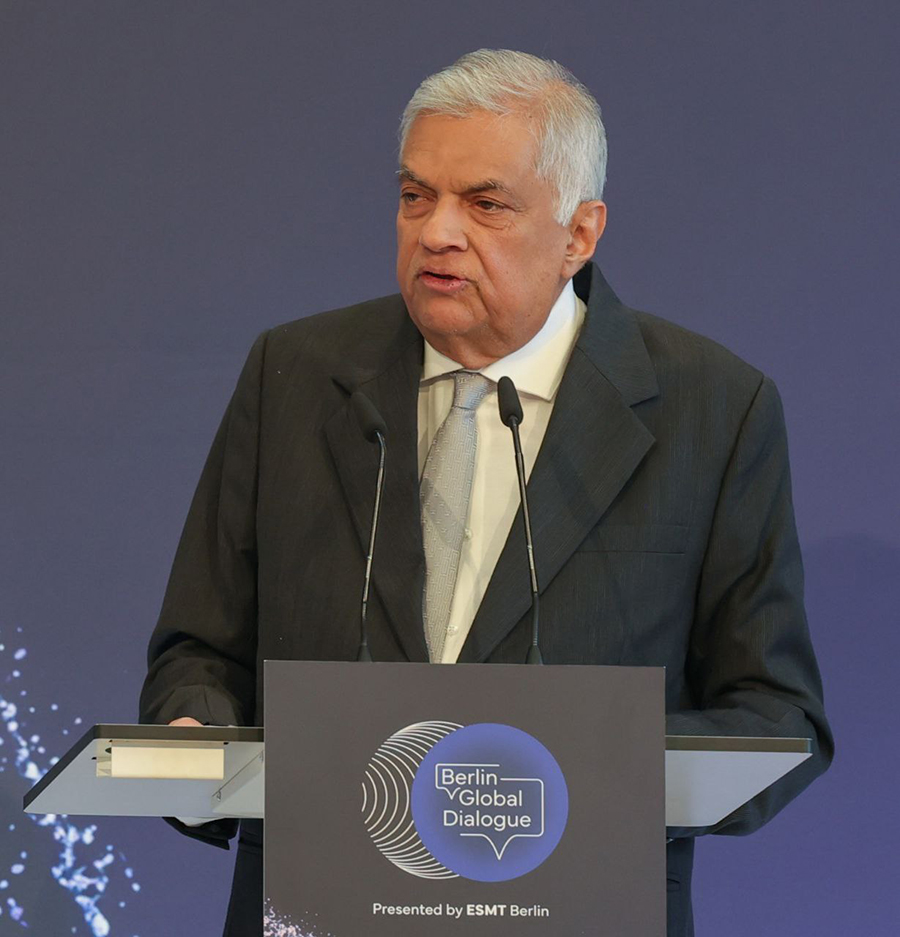



News
CC approves 02 new appointments to Court of Appeal
Published
2 hours agoon
June 15, 2025By
editor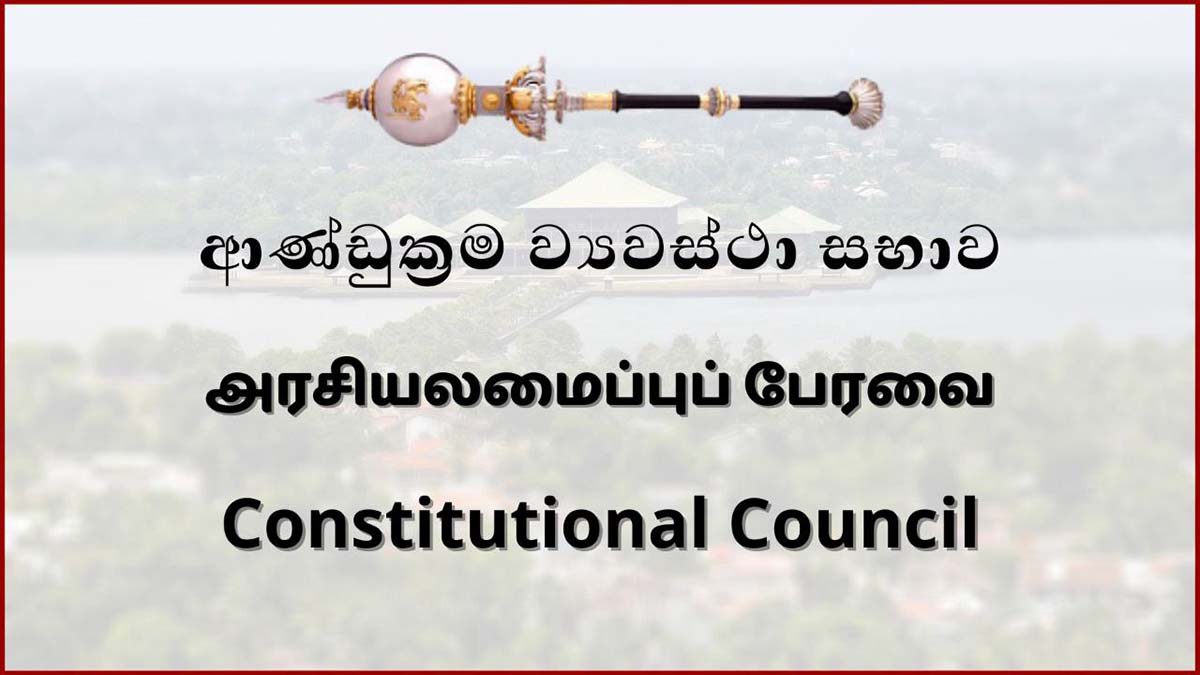
The Constitutional Council (CC) has approved the appointment of two High Court judges as Justices of the Court of Appeal.
It is reported that the Constitutional Council, chaired by Speaker Dr. Jagath Wickramaratne, met recently and approved the nominations submitted by President Anura Kumara Dissanayake on the recommendation of Chief Justice Murdu Fernando.
Accordingly, approval has been granted for the appointment of Colombo High Court Judge Aditya Patabendige and High Court Judge (Civil Appeals) Frank Gunawardena as Justices of the Court of Appeal.
However, it is reported that the proposal to appoint Acting President of the Court of Appeal, Justice Mohammed Thahir Laffar, as a Supreme Court Justice was not considered by the Constitutional Council.
It is stated that the government withdrew the nomination concerning him, as there is currently no vacant seat on the Supreme Court bench.
Meanwhile, on March 11, three newly appointed Court of Appeal Justices were formally sworn in before President Anura Kumara Dissanayake at the Presidential Secretariat.
(adaderana.lk)
(Except for the headline, this story, originally published by adaderana.lk has not been edited by SLM staff)
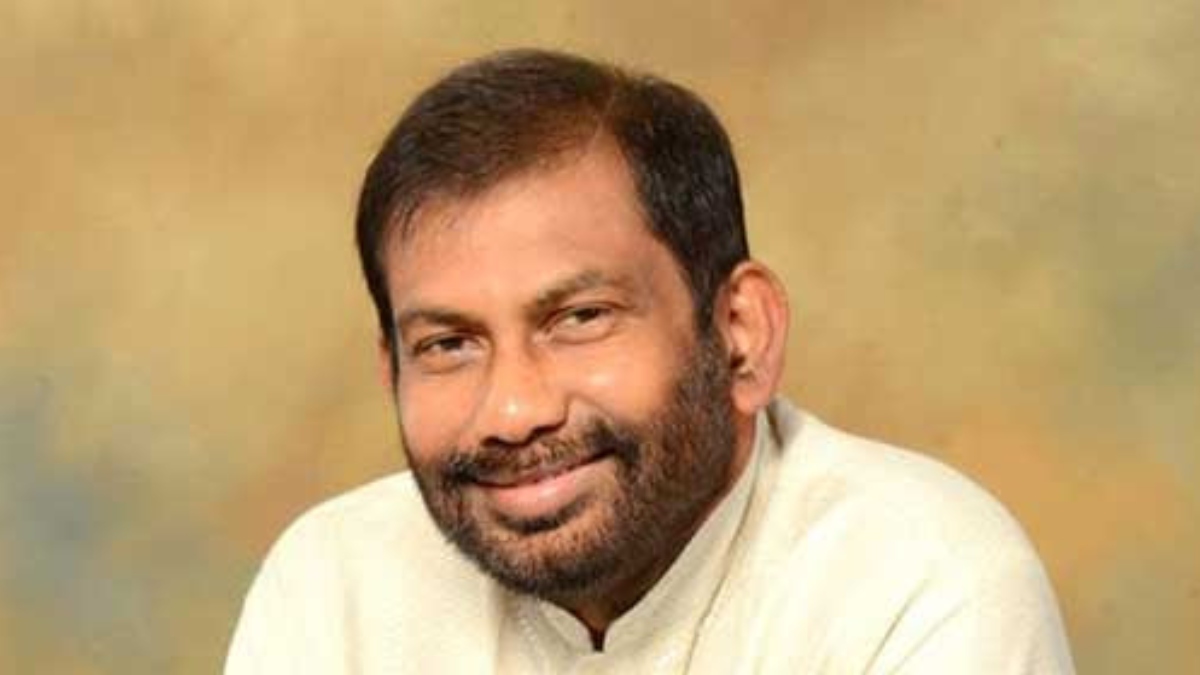
The Colombo Commercial High Court has ordered to publicly auction three companies said to be belonging to former MP Daya Gamage.
According to the Registrar and Deputy Fiscal of the Colombo Commercial High Court, the auction will be held on July 02 at 10am.
The decision to auction these 03 companies was made to recover a sum of Rs. 104,229,342 owed to a leasing company, People’s Leasing & Finance PLC.
As the respondents have paid approximately Rs. 4,080,000 out of the Rs. 108,309,342 to the leasing company, the auction will proceed in accordance with the judgment issued on Nov. 10, 2022, to recover the remaining amount.
The companies scheduled to be auctioned are Daya Group of Ltd., Daya Apparel Exporter (Pvt) Ltd., and Olympus Construction (Pvt) Ltd.
(Source : Deshaya)
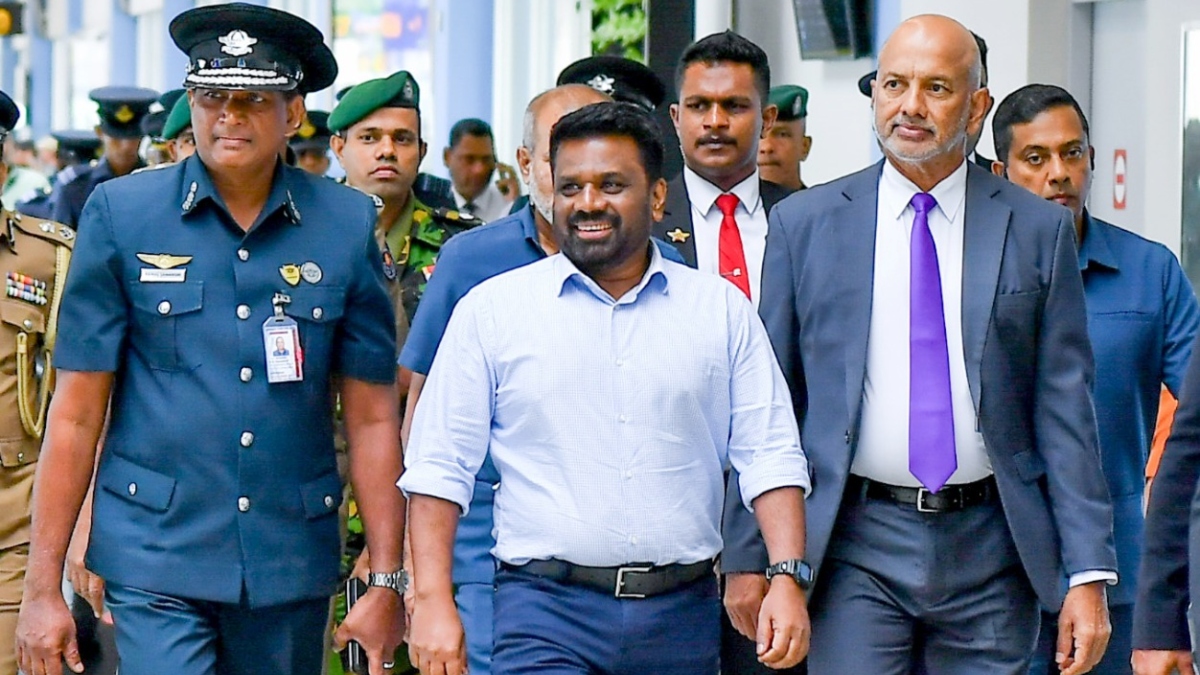
President Anura Kumara Disanayaka has returned to Sri Lanka today (June 15) after a successful visit to the Federal Republic of Germany from June 11 -13.
A statement issued in this regard by the Sri Lankan Ministry of Foreign Affairs, Foreign Employment and Tourism further notes :
President Disanayaka undertook the visit at the invitation of the President of Germany, Frank- Walter Steinmeier, who welcomed him at the Bellevue Palace in Berlin on 11 June 2025, with a ceremonial Guard of Honour accorded by the German Armed Forces.
During the bilateral talks, the two heads of state focused on further strengthening the cordial bilateral relationship and utilizing emerging economic opportunities in areas such as vocational training and the tourism industry. President Disanayaka also briefed the German President on the recent developments in Sri Lanka, including the economic stabilization and reconciliation efforts undertaken and envisaged future action.
During the visit, the German Foreign Minister Dr. Johann Wadephul and German Federal Minister for Economic Cooperation and Development Ms. Reem Alabali-Radovan called on President Disanayake. The discussions with the German Foreign Minister Dr. Wadephul focused on increasing the growing bilateral exchanges between the two countries, economic stabilization efforts, enhancing German investment, the GSP plus trade facility with the European Union, and strengthening cooperation in the multilateral arena.
During the meeting with Minister Alabali-Radovan, President Disanayaka appreciated the development assistance from the German government, which had benefitted the country for more than 65 years, with recent examples being the German-Sri Lanka Friendship Maternity Hospital in Galle and the German Technical Training Institute in Kilinochchi. Discussions also focused on future projects, especially expanding vocational education and training opportunities.
During the visit, the State Secretary of the German Federal Ministry for Economic Affairs and Energy, Dr. Thomas Steffen called on Sri Lanka’s Minister of Foreign Affairs, Foreign Employment and Tourism Vijitha Herath and discussed Sri Lanka’s recent economic progress, improved political stability, and the government’s ongoing efforts to create a more investor- friendly environment.
The visit primarily focused on strengthening economic cooperation between the two countries, including considerable opportunities in emerging areas. Addressing a business forum organized by the Sri Lanka Embassy in Berlin, the German Chamber of Commerce and Industry (DIHK) and the German Asia-Pacific Business Association (OAV) and held at the headquarters of the DIHK, President Disanayake reiterated that Sri Lanka will create a conductive and transparent investment climate and invited the business community to make use of opportunities presented by Sri Lanka’s development potential and strategic location.
At a meeting with key tourism industry associations in Germany focused on outbound tourism, President Disanayake explained the plans of the government to protect the sustainable nature of the tourism industry of Sri Lanka and to address constraints such as human resource development to ensure the continued growth of the vital industry. The President also addressed aspects related to investment in the tourism industry.
The President was accompanied to the meetings by the Minister of Foreign Affairs, Foreign Employment and Tourism Vijitha Herath; Sri Lanka’s Ambassador to Germany Varuni Muthukumarana; Director General for Europe and North America at the Ministry of Foreign Affairs, Foreign Employment and Tourism Sugeeshwara Gunaratna; Chairman of the Board of Investment Arjuna Herath; and other Senior Government officials.

SL squad named for 1st Test against Bangladesh

CC approves 02 new appointments to Court of Appeal


